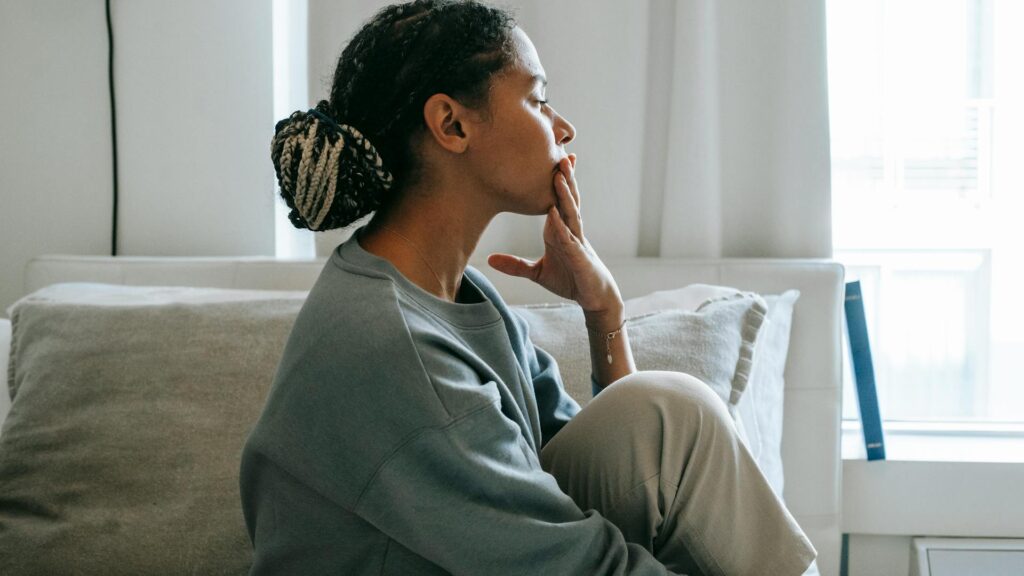It’s a sun-shiny day and it seems like everyone is out and about picnicking, swimming, playing sports, and basking in the warm rays. But what if we’re not feeling it? What if we just want to relax indoors, despite the sunny weather?
Many of us experience a significant amount of guilt when we don’t feel like we’re taking full advantage of a sunny day. To get to the bottom of this phenomenon and the impact it can have on our mental health, let’s explore the causes of sunshine guilt, how it affects our mood, and what we can do to overcome it.
Understanding Why Sunshine Guilt Occurs
So, why do we feel guilty for staying indoors on a sunny day? Understanding this requires exploring the interplay of cultural, social, and psychological factors that influence our emotions and behaviors. After all, there’s a reason why sunshine guilt is a trending topic this time of year.
Cultural and Social Influences
In many cultures, sunny days are synonymous with happiness and activity, creating a societal expectation to be outdoors whenever there is nice weather. That’s why we often see this cultural norm reinforced by social media, where we see people “living their best lives,” so to speak, outdoors.
Platforms like Instagram and Facebook showcase a constant stream of people enjoying the great outdoors, which can amplify this fear of missing out (FOMO) if you choose to stay inside. This pressure can exist in our minds as a fierce voice saying, ‘look what everyone else is doing outside, I should be there, too!’
FOMO comes from an innate psychological need to belong; so it makes sense that seeing our friends’ Instagram stories about fun in the sun can cause great discomfort. According to Grow Therapy provider Melissa Murray, LCSW, this is especially true for young people. “That age group tends to look to social media for answers and ideas. As a result, they may feel pressure to be outdoors during warm months,” she says.
Psychological Factors
Psychologically, sunshine guilt can stem from internalized beliefs about the importance of making the most of good weather. These beliefs might originate from childhood, where sunny days were treated as special and not to be wasted, or from societal messages that equate good weather with good times. After all, we know that being out in nature is particularly beneficial for our mental well-being.
There’s also a strong association between rays of sunshine and increased happiness and activity, a concept supported by research suggesting that sunlight positively affects our mood and energy levels. For some, choosing to stay indoors might feel like ignoring a natural mood enhancer, leading to guilt and self-reproach.
Together, these cultural and social pressures get mixed up with our internal beliefs and can lead to feelings of guilt when we opt to stay indoors on a sunny day. Understanding where these influences come from is the first step toward mitigating sunshine guilt and making peace with our personal preferences for how we spend our time, regardless of the weather.
The Impact of Sunshine Guilt
Sunshine guilt can have tangible effects on both our physical and mental health, manifesting in our bodies and minds in ways that may subtly influence our day-to-day well-being.
Mental Health Effects
The emotional repercussions of sunshine guilt, or guilt of any kind, are significant. Anxiety and stress often stem from FOMO on seemingly joyful or worthwhile experiences outside in the sunshine. Sure, we can feel anxious about missing out on the activities themselves, but this also involves perceiving oneself as wasting precious opportunities, which can compound feelings of stress.
The internal conflict of wanting to stay indoors yet feeling compelled to go outside can also evoke feelings of inadequacy or laziness. These feelings can be particularly pronounced on social media, where it’s easy to compare our lives and choices to curated depictions of how others are having fun in the sun.
Physical Health Effects
On the physical side, sunshine guilt might prompt individuals to neglect important indoor responsibilities or personal preferences, leading to further stress. For instance, someone might forgo a cherished indoor hobby or necessary household tasks, like organizing or cleaning, because of the pressure to be outdoors. Over time, the stress of unmet indoor obligations can accumulate, potentially affecting sleep patterns and general physical health. Additionally, for individuals who genuinely prefer indoor activities, neglecting these can reduce overall life satisfaction and personal fulfillment, which are crucial for long-term well-being.
Understanding the comprehensive impact of sunshine on mental and physical health underscores the importance of addressing and overcoming this guilt. Doing so not only enhances individual well-being but also supports a healthier, more balanced lifestyle, regardless of the weather outside.
Strategies to Overcome Sunshine Guilt
Here are some strategies that can help you process these feelings and encourage a more balanced approach to how we spend our time.
Mindfulness and Self-Compassion
Mindfulness is a path to greater self-compassion and understanding, and practicing it can help us appreciate the present moment, whether we’re indoors or outdoors. It involves acknowledging and accepting one’s feelings and surroundings without judgment, which can help reduce the stress of feeling like you’re not making the most of sunny weather.
Every day is a great day to be kind to ourselves and recognize that it’s perfectly acceptable to stay indoors reading, listening to a podcast, watching your favorite show, or completing necessary tasks if that’s what feels right. Rather than succumbing to self-criticism for not being outside, self-compassion allows you to respect your own needs and choices without feeling inadequate.
Balanced Lifestyle Choices
Achieving a balance between enjoying the outdoors and fulfilling indoor responsibilities is key. This can be managed by setting realistic expectations for how much time you spend outside. It’s not necessary to maximize every sunny day; instead, focus on finding a personal equilibrium that feels fulfilling. Planning your sunshine intake in 10-15-minute spurts, so you can still soak up the benefits of the sunshine without having to spend the entire day outdoors.
You can also plan outdoor activities that you truly enjoy and pair them with your indoor tasks and hobbies to create a well-rounded routine that respects both your desires and your obligations.
If you feel overwhelmed with FOMO after endless social media scrolling, consider setting some healthy boundaries with your devices. This can help you separate what everyone else is doing from what you want for yourself, allowing you to honor yourself and your choice to stay inside.
Cognitive Behavioral Approaches
Cognitive-behavioral strategies can be particularly effective in tackling sunshine guilt. Start by identifying the negative thoughts that arise when choosing to stay indoors — such as “I’m wasting a beautiful day” or “I should be more active.” Challenge these thoughts by questioning their validity and exploring the real consequences of staying inside. Replace these guilt-inducing thoughts with positive affirmations about your personal choices, such as “I choose to do what makes me happiest today” or “I value my own comfort and well-being.” This re-framing helps shift the mindset from one of guilt to one of empowerment over your own decisions.
The Role of Therapy in Addressing Sunshine Guilt
Therapy can be a powerful tool for addressing and overcoming sunshine guilt, offering techniques and insights that help reconcile internal conflicts about how to spend your time.
Therapeutic Techniques
Just as the cognitive behavioral techniques above can help us reframe our thoughts, exploring Cognitive-Behavioral Therapy (CBT) with a licensed therapist is a great way to go deeper, eventually understanding where the thought patterns come from in the first place and replacing or changing current relationships with these thoughts.
Acceptance and Commitment Therapy (ACT) is another helpful approach, especially for those who struggle with aligning their actions with their personal values. ACT encourages individuals to accept their feelings rather than fight against them, making choices based on personal values rather than societal expectations. This can be particularly useful for those who feel pressured by the predominant culture of maximizing outdoor activities on sunny days.
Benefits of Professional Guidance
Working with a therapist provides a supportive environment to explore and understand the feelings of guilt associated with staying indoors. A therapist can offer strategies to manage the anxiety that comes with weather-related social pressures, helping you develop healthier ways to cope with and eventually eliminate sunshine guilt. Professional guidance also includes personalized support in navigating personal values and making decisions that enhance overall well-being.
Going to therapy can be a gateway to gaining deeper insights into thoughts, emotions, and behaviors. It’s a space where we can also receive support in making informed decisions about how we spend our time, so we can learn to enjoy life’s moments — sunny or not — without guilt.
If you’re experiencing sunshine guilt and are ready to embrace every day on your own terms, connect with a Grow Therapy provider who can guide you through personalized strategies and support. Discover a therapist who aligns with your needs, and start your journey toward a guilt-free summer.

